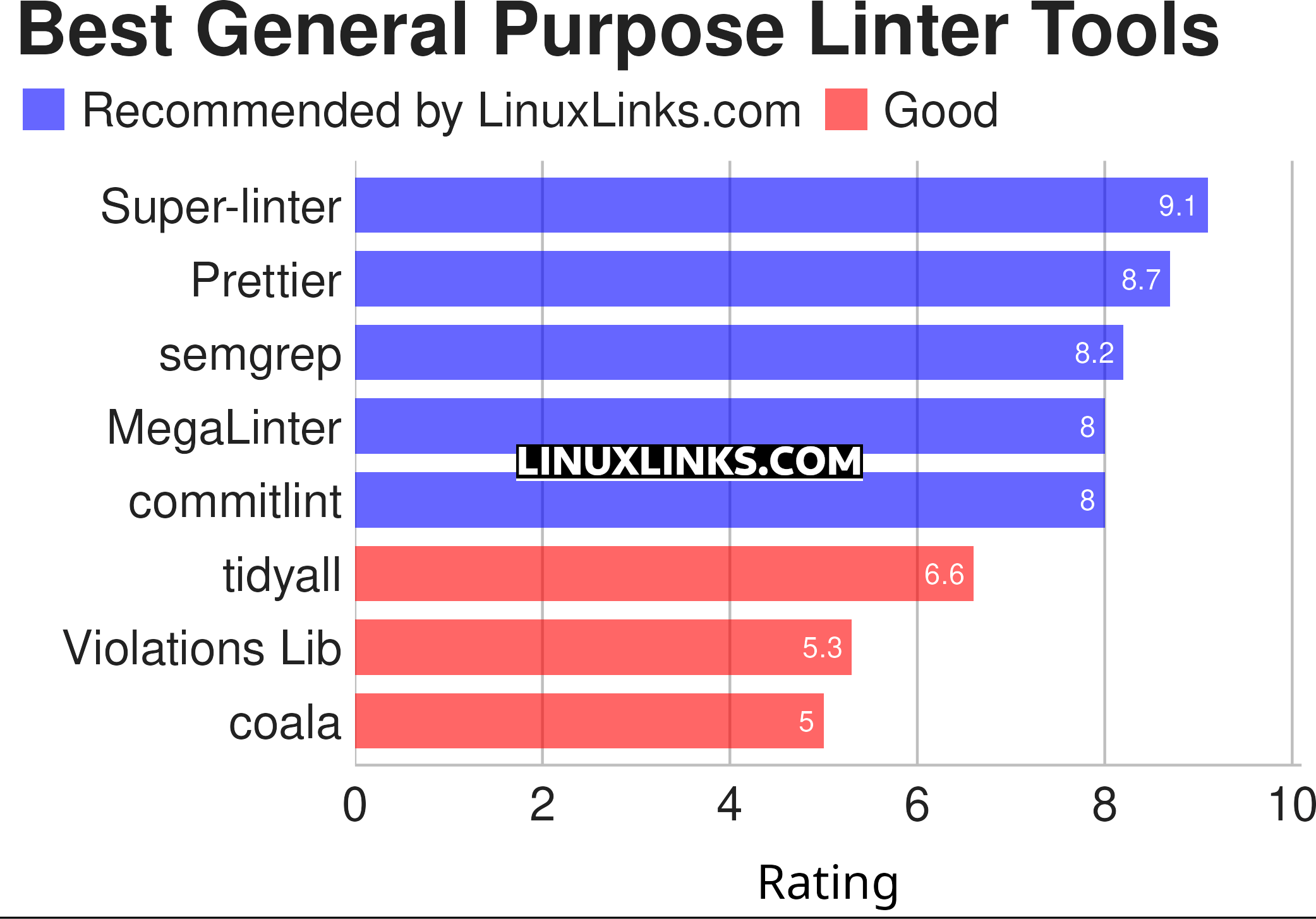A linter is a tool used in software development to analyze source code for potential errors, stylistic issues, and adherence to coding standards. It essentially acts as a static code analyzer, examining the code without actually executing it. Linters help developers catch issues early in the development cycle, improving code quality and maintainability
Linters are useful tools for maintaining code quality and consistency in your applications. They analyze code for potential issues, enforce coding standards, and help catch errors before they are pushed into production. Linters are not necessarily a quick fix, can be a distraction, and it’s not inconceivable that they may not be helpful with old, large code bases.
This article picks some useful tools to help you fix code.
Here’s our verdict captured in a legendary LinuxLinks-style ratings chart. Only free and open source software is eligible for inclusion here.

Click the links in the table below to learn more about each tool.
| General Purpose Linter Tools | |
|---|---|
| Super-linter | Collection of linters and code analyzers |
| Prettier | Opinionated code formatter |
| semgrep | Static analysis for many languages |
| MegaLinter | Analyzes the consistency of your code |
| commitlint | Lint commit messages |
| tidyall | All-in-one code tidier and validator |
| Violations Lib | Parse report files from static code analysis |
| coala | Lint and fix code |
 Read our complete collection of recommended free and open source software. Our curated compilation covers all categories of software. Read our complete collection of recommended free and open source software. Our curated compilation covers all categories of software. Spotted a useful open source Linux program not covered on our site? Please let us know by completing this form. The software collection forms part of our series of informative articles for Linux enthusiasts. There are hundreds of in-depth reviews, open source alternatives to proprietary software from large corporations like Google, Microsoft, Apple, Adobe, IBM, Cisco, Oracle, and Autodesk. There are also fun things to try, hardware, free programming books and tutorials, and much more. |

